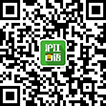阿根廷俚语第十二谈
pendejo/a 1 [m, f, adj] [rude, but not insulting] child, kid, boy/girl; [usually appreciative] (someone who looks like) a young person; [derogatory] childish, improper for an adult person, esp. used of something made out of whim and arbitrariness (pendejada [n]); 2 [m] [generally only used among boys, very rude] a pubic hair. (Note well, the first meaning is not an insulting term of address as in Mexican Spanish.)
petiso/a [adj] [colloquial, usually non-derogatory] short, of small stature. Used also as a noun and an addressing term.
pibe/a [m, f] kid, child, boy/girl, youngster. (Sounds a bit rude for girls.)
pifiar [v] to fail, to have a bad shot, to throw something and miss the target. (This word is not really only Argentine slang; it's well known in the mainstream, and I know that at least RPGers in Spain use it for the same thing as we do -- e. g. what you get in MERP when you throw a low number in the dice and your weapon does something weird..., that is, a pifia [f]). In general, a failure or mistake of any kind.
pila [f] lit. a battery; energy, disposition for work, awareness of things to do; usually in the phrase ponerse las pilas 'to put some batteries on': to assume responsibility and start to work; to take charge of one's situation; to get up, think carefully and do what is expected. Lately also found as ponerse media pila 'to put on half a battery' (ironical).
pinturita [f] lit. 'little picture'; una pinturita [fixed phrase] perfect, sharp, 'squeaky clean'; in very fine condition.
piquetero/a [m, f] [colloquial at first, now mainstream] a person (generally unemployed or sub-employed) that participates in piquetes to protest his/her condition. A piquete is a gathering of such people, usually blocking some important way and demonstrating, noisily and sometimes violently. Piquete is a mainstream Spanish word; piquetero was coined (by the media?) when the economic crisis reached new depths during Carlos Menem's second period (1995-1999). At this time unemployment became a symptom of social breakdown, and piqueteros started blocking, not entrances to factories or government buildings, but national highways, sometimes attacking passing drivers. During the last four years or so, the piqueteros have become a social movement and (for some) acquired darker features, such as the appearance of charismatic leaders with inflammatory speech and extreme ideological biases. There are so many unemployed people in Argentina that the unemployed have become unionized! Piquetero was a neologism at first (used in quotes); now the media have incorporated the word as part of their common vocabulary.
pirulo [m] [colloquial] a year (used only as a unit for people's age).
podrido/a [adj] lit. rotten; podrido de tired of; podrido en full of, up to one's ears in (something good, usually money).
ponja [m/f, adj] Japanese (thing, person, language). From syllable inversion of Japón 'Japan'.
porro [m] a marihuana joint.
porrón [m] a bottle of beer, and its contents. Originally a special kind of container for liquids, now applied to beer only, though the bottles are not really different.
posta 1 [f] a piece of news, esp. gossip; hearsay or a prediction that the speaker assures to be true and from a trustable source; 2 [interj] (esp. repeated) this is sure, I'm sure. Example: Te tiro una posta: esta yegua hoy gana 'I'll drop you a hint/I assure you: this mare will win today' (at the races, obviously). See fija. --¿En serio? --¡Posta posta! '--Really? --Damn sure!'.
quichicientos [numeral] (ficticious number) large number, a lot, a gazillion.
quilombo [m] [rudish]: (from an African language?, kimbundu 'bungalow') 1 [old-fashioned, rare] brothel, whorehouse; 2 (a) mess, scandal, terrible noise, disorder. A messed-up place or a complicated situation is said to be enquilombado/a.
- 相关热点:
- 西班牙语视频








